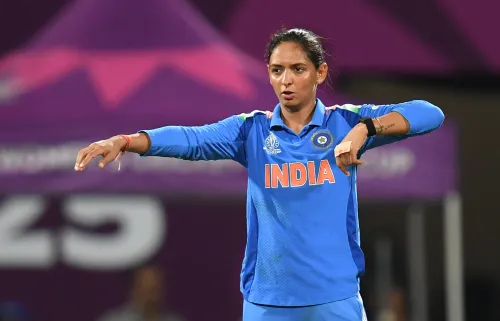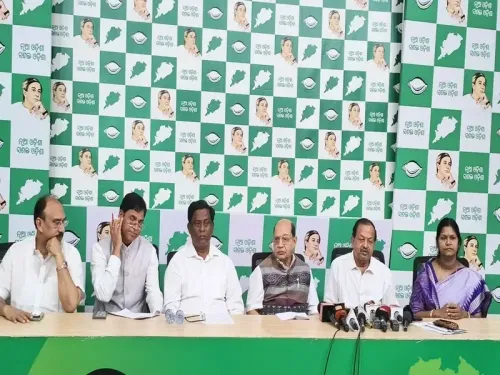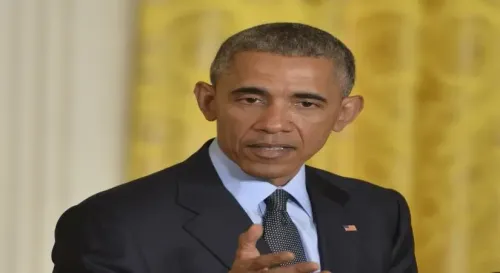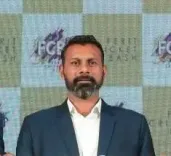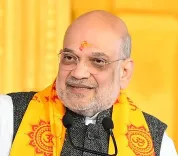Will the Supreme Court Address the Pleas for J&K's Statehood Restoration Today?
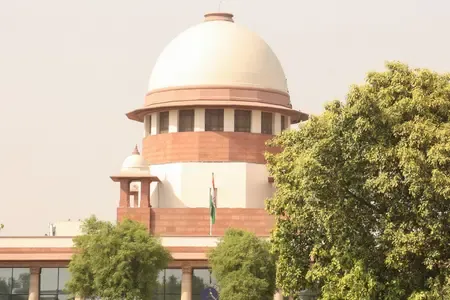
Synopsis
Key Takeaways
- The Supreme Court is set to hear petitions for the restoration of J&K's statehood.
- Arguments focus on the impact on citizens' rights and the principles of federalism.
- The government cites unique challenges in J&K as reasons for the delay.
- 21 months have passed since the Article 370 ruling without statehood restoration.
- The outcome of the hearing could significantly influence governance in the region.
New Delhi, Oct 10 (NationPress) The Supreme Court is set to deliberate on a series of petitions today that call for the prompt restoration of statehood in Jammu and Kashmir.
As per the schedule available on the apex court's portal, a bench led by Chief Justice of India (CJI) B.R. Gavai and Justice K. Vinod Chandran will continue to hear this case on October 10.
During a previous hearing on August 14, the CJI Gavai-led Bench highlighted the “ground realities” and referenced the Pahalgam terror attack while agreeing to the Centre’s request to revisit the issue after a period of eight weeks.
“You must also consider the ground realities. The events in Pahalgam cannot be overlooked,” the apex court remarked to the petitioners who were advocating for a swift resolution to restore the statehood of J&K.
The petitioners contended that the ongoing postponement of statehood is “seriously impacting the rights of citizens” in Jammu and Kashmir and is also infringing upon the principles of federalism.
They asserted that failing to restore statehood within a defined timeframe constitutes a breach of federalism, which is integral to the Basic Structure of the Constitution. “It has been 21 months since the Article 370 ruling. There has been no progress towards restoring statehood,” argued senior advocate Gopal Sankaranarayanan, noting that the Constitution Bench had relied on the Union government’s assurance regarding the restoration of statehood.
Solicitor General (SG) Tushar Mehta, the government’s second-highest legal official, challenged the validity of the applications and requested the court to recognize the “peculiar position” of J&K, suggesting that the petitions be heard after eight weeks, claiming this was not the right time to address the matter.
“These applications are not maintainable. We had assured two things: elections would occur, followed by the restoration of statehood. Your lordships understand the unique circumstances of this region. There are multiple factors to consider,” SG Mehta stated.
“I don't comprehend why this issue is raised at this stage; please list it after eight weeks. I will seek further instructions. My request is for eight weeks because this stage is not suitable to complicate matters,” he added.
Following the arguments, the CJI Gavai-led Bench requested the Union government to provide its position on the issue and scheduled the next hearing for eight weeks later. In the ruling regarding Article 370 of the Constitution, a five-judge Constitution Bench, led by former CJI D.Y. Chandrachud, left open the question of whether Parliament can diminish the status of statehood by turning a state into one or more Union Territories, relying on an oral commitment from the Centre that statehood would be reinstated for J&K.
During the oral arguments, the government’s legal representative mentioned that the Union Home Ministry could not provide a specific timeline, indicating that it would take “some time” to restore statehood in J&K.


